
The Alpine Jewel of Ischgl
Nestled in the heart of the Austrian Alps, Ischgl is a dream come true for winter sports enthusiasts and nature lovers alike. This picturesque village is part of the renowned Silvretta Arena, one of the largest ski areas in the Alps, offering over 238 kilometers of pristine slopes. Whether you are an expert skier or a beginner, Ischgl provides an exhilarating experience with its diverse range of runs and state-of-the-art lift systems. Beyond skiing, Ischgl is famous for its vibrant après-ski scene. The village comes alive in the evenings with numerous bars, restaurants, and clubs, ensuring that the fun continues long after the slopes close. The annual Top of the Mountain concerts, featuring world-renowned artists, are a highlight of the winter season and draw visitors from all over the globe. During the summer months, Ischgl transforms into a paradise for hikers and mountain bikers. The stunning landscapes, dotted with alpine flowers and crystal-clear streams, provide a breathtaking backdrop for outdoor adventures. The region also boasts a variety of wellness centers and spas where visitors can relax and rejuvenate amidst the tranquil alpine setting.
Local tips in Ischgl
- Visit the Silvretta Arena early in the day to avoid crowds and enjoy the freshly groomed slopes.
- Book accommodations well in advance, especially during peak ski season and the Top of the Mountain concerts.
- Explore the local cuisine, with specialties like Tiroler Gröstl and Kaiserschmarrn, at the traditional alpine huts.
- Take advantage of the free ski buses that connect Ischgl with nearby villages and ski areas.
- Don't miss the Paznaun-Ischgl culinary walks in summer, combining hiking with gourmet dining experiences.
The Alpine Jewel of Ischgl
Nestled in the heart of the Austrian Alps, Ischgl is a dream come true for winter sports enthusiasts and nature lovers alike. This picturesque village is part of the renowned Silvretta Arena, one of the largest ski areas in the Alps, offering over 238 kilometers of pristine slopes. Whether you are an expert skier or a beginner, Ischgl provides an exhilarating experience with its diverse range of runs and state-of-the-art lift systems. Beyond skiing, Ischgl is famous for its vibrant après-ski scene. The village comes alive in the evenings with numerous bars, restaurants, and clubs, ensuring that the fun continues long after the slopes close. The annual Top of the Mountain concerts, featuring world-renowned artists, are a highlight of the winter season and draw visitors from all over the globe. During the summer months, Ischgl transforms into a paradise for hikers and mountain bikers. The stunning landscapes, dotted with alpine flowers and crystal-clear streams, provide a breathtaking backdrop for outdoor adventures. The region also boasts a variety of wellness centers and spas where visitors can relax and rejuvenate amidst the tranquil alpine setting.
When is the best time to go to Ischgl?
Iconic landmarks you can’t miss
A1 Silvrettabahn
Discover breathtaking views and thrilling adventures at A1 Silvrettabahn in Ischgl, the ultimate alpine destination for skiers and hikers alike.
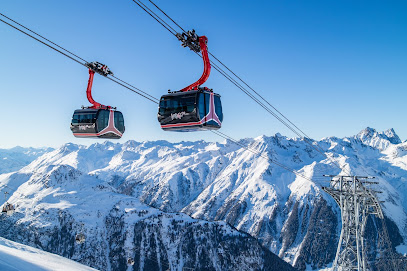
Trofana Alm
Experience the lively atmosphere of Trofana Alm in Ischgl, where delicious pizza meets unforgettable live music performances.
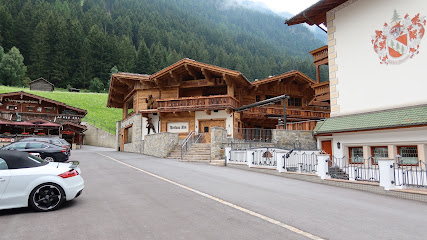
Schatzi Bar
Experience the vibrant atmosphere and delectable cuisine at Schatzi Bar in Ischgl, where every visit is a celebration of local flavors and hospitality.
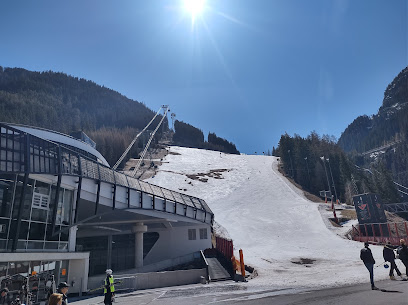
Kuhstall
Experience the lively atmosphere at Kuhstall, Ischgl's premier bar and nightclub, perfect for après-ski fun and unforgettable nights.
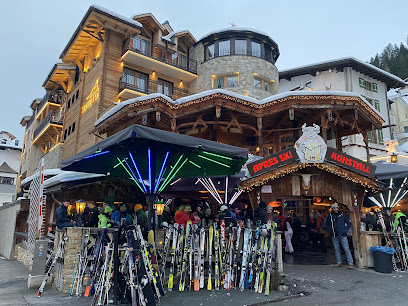
Bergrestaurant Höllboden
Experience the perfect blend of alpine scenery and delicious cuisine at Bergrestaurant Höllboden in Ischgl, a must-visit mountain retreat.
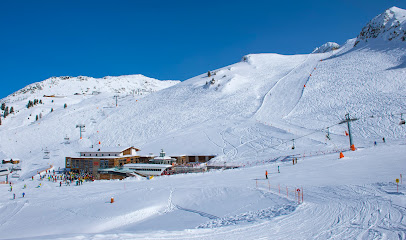
Silvretta Therme Ischgl
Experience ultimate relaxation in the heart of the Alps at Silvretta Therme Ischgl, featuring pools, saunas, and luxurious spa treatments.
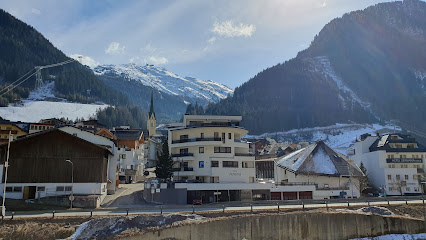
B2 Flimjochbahn Bergstation
Discover the breathtaking beauty of the Austrian Alps at B2 Flimjochbahn Bergstation, your gateway to unforgettable adventures in Ischgl.
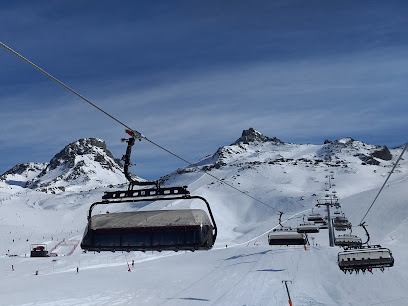
Hotel Salnerhof
Discover the luxurious Hotel Salnerhof in Ischgl, where traditional Austrian hospitality meets stunning alpine beauty and unparalleled relaxation.
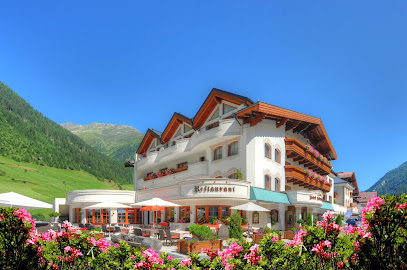
3-S Pardatschgratbahn
Experience breathtaking views and thrilling adventures at the 3-S Pardatschgratbahn, a premier mountain cable car in Ischgl, Austria.
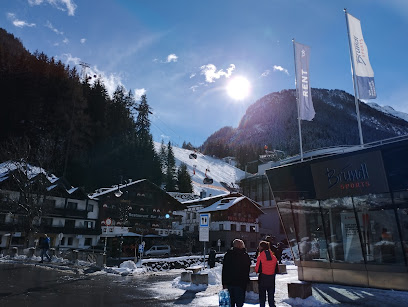
Hotel Trofana Royal
Experience luxury and wellness in Ischgl at Hotel Trofana Royal, where fine dining and rejuvenation meet in a stunning Alpine backdrop.
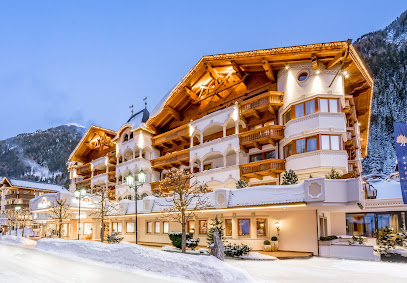
Hotel Sonne Ischgl
Experience unparalleled luxury at Hotel Sonne Ischgl, your gateway to adventure in the stunning Tyrolean Alps with exquisite dining and world-class amenities.
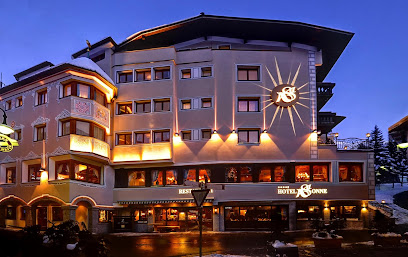
Hotel Eldorado
Experience luxury and comfort at Hotel Eldorado, your gateway to adventure in the beautiful Ischgl region of Austria.
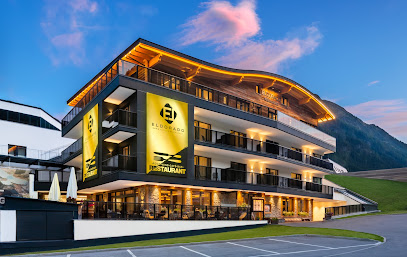
Kitzloch Ischgl
Experience the perfect blend of Tyrolean charm and modern culinary delights at Kitzloch Ischgl, an inviting restaurant and bar in the heart of Austria's alpine paradise.
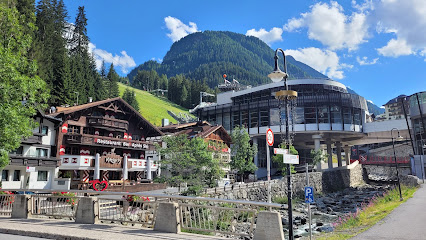
Hotel Jägerhof
Experience the charm of Ischgl at Hotel Jägerhof, your luxurious alpine getaway offering comfort, wellness, and local cuisine amidst breathtaking mountain views.

Lucy Wang Ischgl
Experience the perfect fusion of Japanese and French culinary traditions at Lucy Wang Ischgl – a true gastronomic delight in the heart of the Alps.
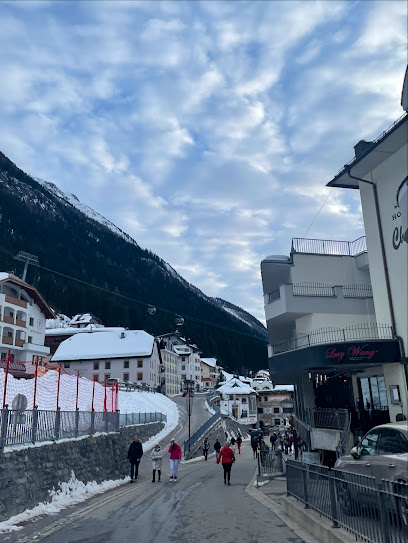
Unmissable attractions to see
A1 Silvrettabahn
Discover the breathtaking vistas and thrilling adventures at A1 Silvrettabahn, your ultimate destination for skiing and hiking in the heart of the Alps.
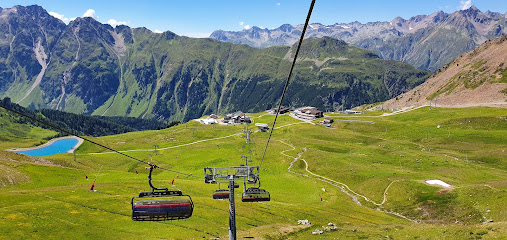
Swiss National Park
Discover the breathtaking landscapes and diverse wildlife of Swiss National Park, a premier destination for nature lovers and adventure seekers in the Swiss Alps.
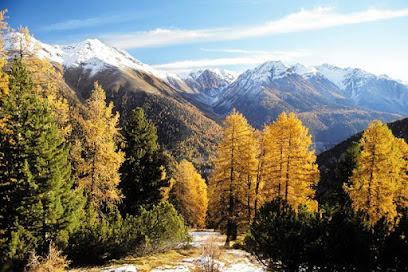
Silvretta Therme Ischgl
Experience ultimate relaxation and adventure at Silvretta Therme Ischgl, a premier spa and leisure destination nestled in the stunning Tyrolean Alps.
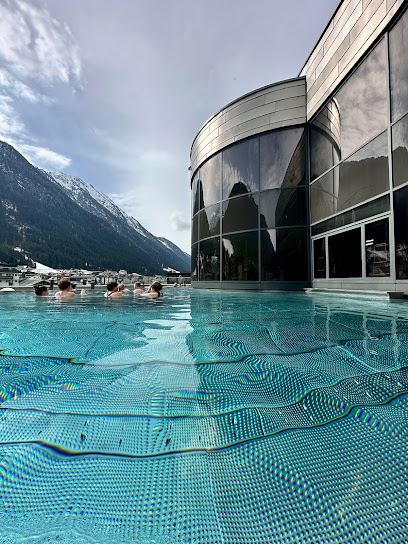
3-S Pardatschgratbahn
Discover the breathtaking heights of the Alps with the 3-S Pardatschgratbahn, a modern cable car offering stunning views and access to exciting outdoor activities.
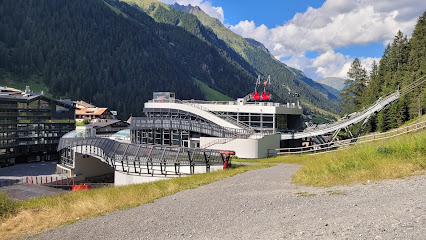
Hängebrücke Bärenfalle
Experience the thrill of crossing Hängebrücke Bärenfalle, a stunning suspension bridge in Ischgl, surrounded by breathtaking Alpine scenery.
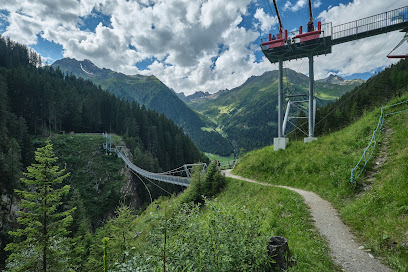
Ischgl Skyfly
Experience the ultimate thrill at Ischgl Skyfly, where breathtaking alpine views meet exhilarating adventure in the heart of the Ötztal Alps.
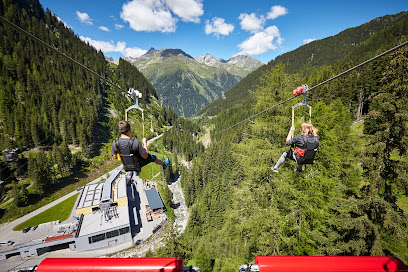
Hängebrücke Kitzloch
Experience the breathtaking heights of Häengebrücke Kitzloch, a stunning suspension bridge in Ischgl, Austria, perfect for adventure and scenic views.
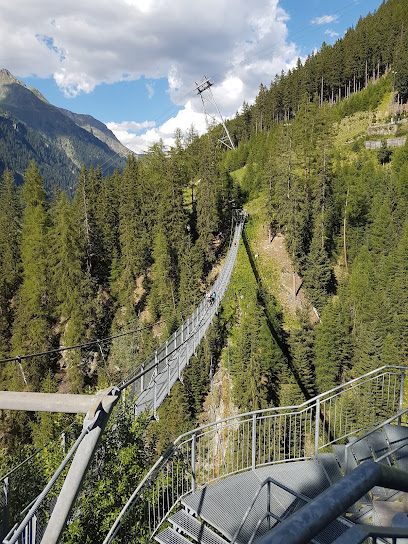
Schwarzwassersee
Experience the serene beauty and outdoor adventures at Schwarzwassersee, a breathtaking lake in Ischgl, Austria, perfect for nature lovers and hikers.
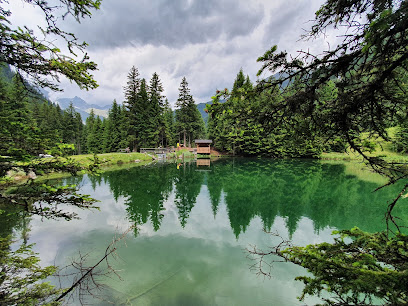
Chamanna Cluozza
Experience the serene beauty and rustic charm of Chamanna Cluozza, a mountain cabin nestled in the breathtaking Swiss Alps.

Vider Truja Adventure Park
Discover the ultimate family adventure at Vider Truja Adventure Park in Ischgl, featuring water attractions, picnic spots, and fun for all ages!
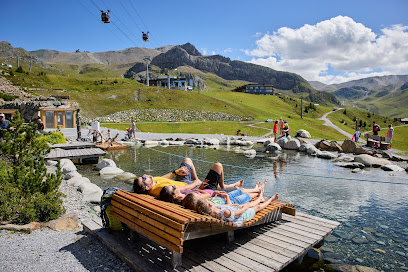
Seilbahnmuseum Ischgl
Discover the fascinating history of cable cars and ski lifts at the Seilbahnmuseum Ischgl, a must-visit for all mountain lovers.
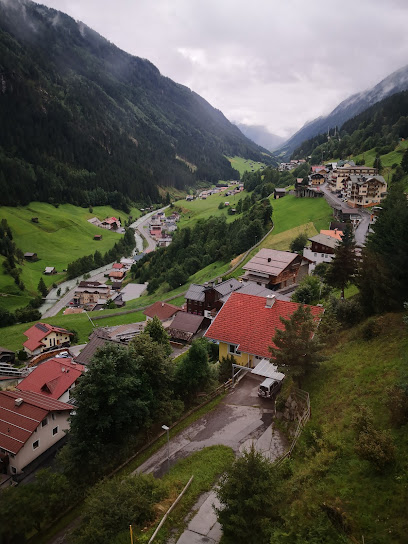
Alp Trupchun
Experience the breathtaking beauty and tranquility of Alp Trupchun, a picturesque mountain cabin in the heart of the Swiss Alps.

Walk of Lyrics
Explore the Walk of Lyrics in Ischgl, Austria, where stunning alpine views meet poetic inspiration along breathtaking hiking trails.
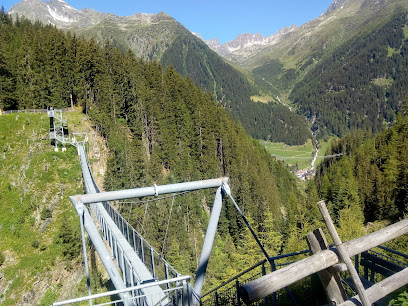
Mathias Schmid Museum
Discover the artistic legacy of Mathias Schmid at the museum in Ischgl, showcasing Tyrolean culture and breathtaking alpine landscapes.
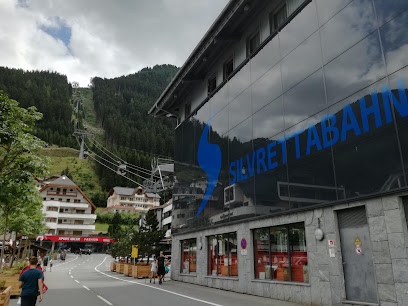
Erlebniswanderweg Ischgl 1 h
Explore the breathtaking hiking trails of Erlebniswanderweg Ischgl, where stunning alpine views meet serene natural beauty in the heart of Austria.
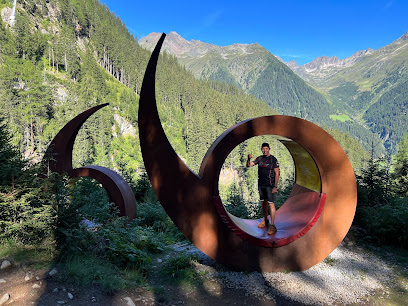
Essential places to dine
Paznauner Taja
Experience authentic Austrian cuisine at Paznauner Taja in Ischgl – famous for its delicious pizza and stunning mountain views.
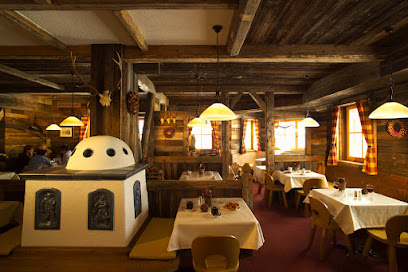
Kuhstall
Experience vibrant nightlife at Kuhstall in Ischgl - where exceptional drinks meet delicious cuisine in an unforgettable setting.
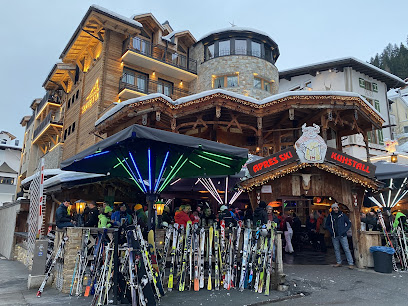
Hotel | Restaurant - Nevada
Discover the charm of Ischgl at Hotel Nevada - where authentic Austrian cuisine meets warm hospitality in the heart of the Alps.
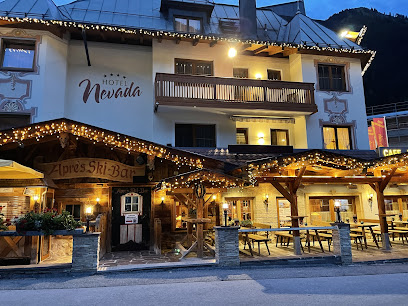
Restaurant Sunnalm
Discover Restaurant Sunnalm: An Alpine Dining Experience with Authentic Austrian Cuisine and Stunning Mountain Views.
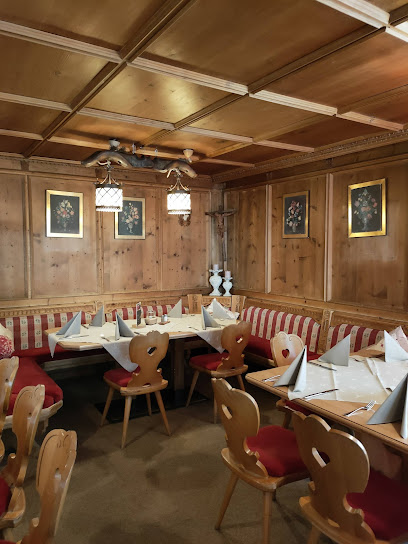
Hotel Eldorado
Discover luxury at Hotel Eldorado - your gateway to Ischgl's breathtaking landscapes and world-class skiing experiences.
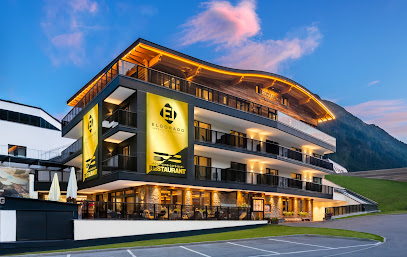
Kitzloch Ischgl
Experience authentic Austrian cuisine at Kitzloch Ischgl - where delicious food meets vibrant alpine charm.
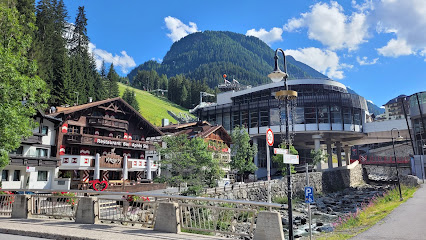
Bärafalla Restaurant
Experience authentic Austrian cuisine amidst breathtaking alpine views at Bärafalla Restaurant in Ischgl.
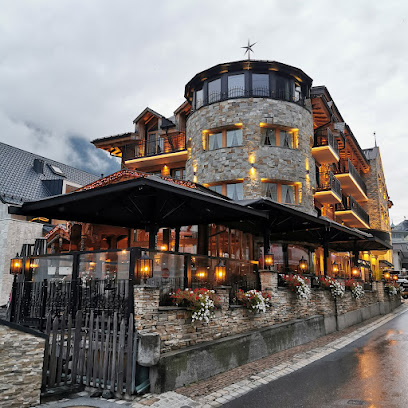
fire & ice ISCHGL
Experience exquisite dining and vibrant nightlife at fire & ice ISCHGL – where culinary delights meet an electric atmosphere.
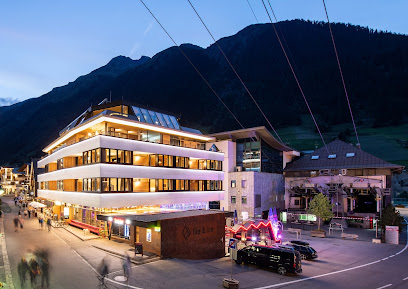
Lucy Wang Ischgl
Discover the fusion of Asian flavors and French cuisine at Lucy Wang Ischgl – your destination for authentic sushi and vibrant dining.
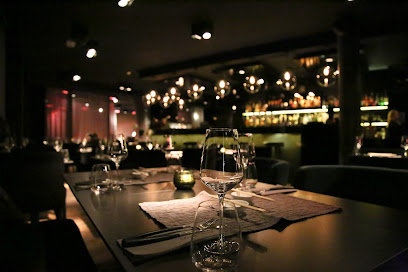
Restaurant Loba
Discover Restaurant Loba: A Culinary Haven in Ischgl Offering Local Flavors and International Cuisine for Every Palate.
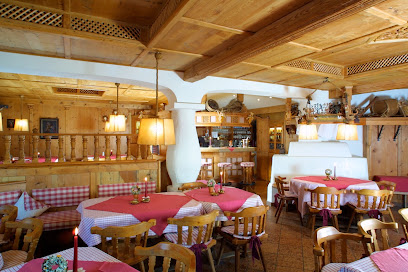
Gourmetrestaurant Salnerhof
Experience exquisite fine dining at Gourmetrestaurant Salnerhof in Ischgl – where tradition meets modern culinary artistry amidst stunning alpine views.
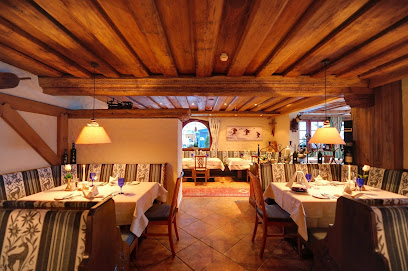
Restaurant Grill-Alm
Discover Grill-Alm: where traditional Tyrolean cuisine meets modern flair in the heart of Ischgl's breathtaking Alps.
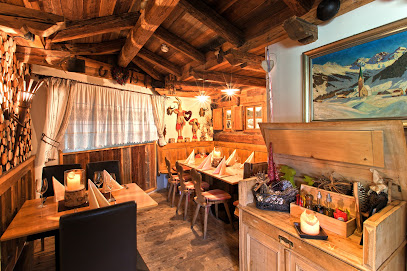
Hotel - Restaurant Talblick
Discover the perfect blend of comfort and culinary excellence at Hotel - Restaurant Talblick in scenic Ischgl.
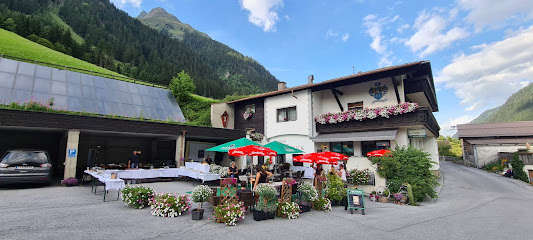
Restaurant Stiar
Experience exquisite fusion cuisine amidst breathtaking alpine views at Restaurant Stiar in Ischgl.
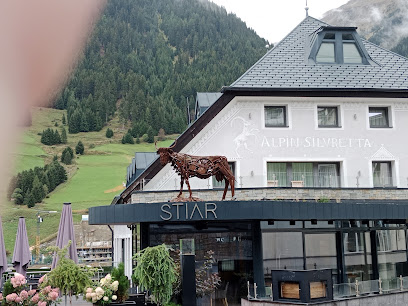
Bar & Bistro Castello
Experience authentic Italian flavors at Bar & Bistro Castello in Ischgl – where delicious pizza meets cozy ambiance.
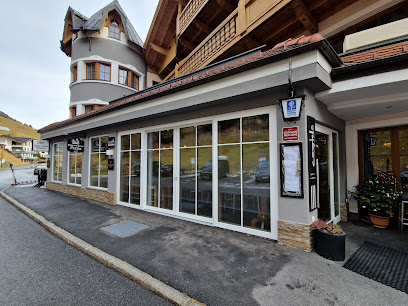
Markets, malls and hidden boutiques
BILLA
Discover BILLA in Ischgl, your go-to supermarket for fresh produce, local specialties, and convenience while enjoying the Tyrolean Alps.
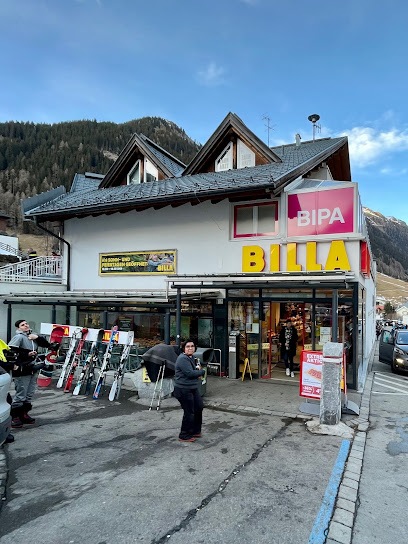
Bründl Sports Ischgl Zentrum
Explore Bründl Sports Ischgl Zentrum for the best in ski rentals, outdoor sports gear, and expert advice in the heart of the Alps.
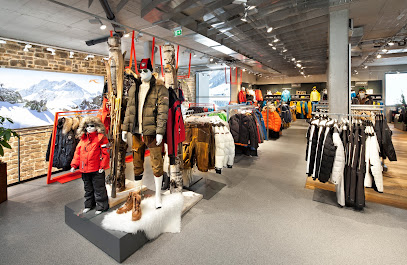
Pazze Nova
Discover Pazze Nova in Ischgl: A cozy boarding house with a delightful restaurant and coffee shop, perfect for your alpine getaway.
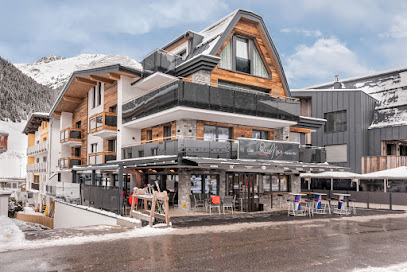
Baguette
Discover authentic Austrian baked goods at Baguette in Ischgl, a charming bakery and café perfect for a cozy break during your travels.
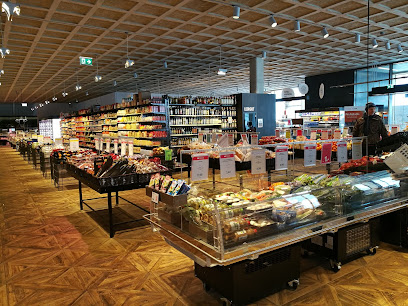
Ski2Rent
Discover Ski2Rent in Ischgl for premium ski gear rentals and expert advice, ensuring an unforgettable skiing experience in the Austrian Alps.
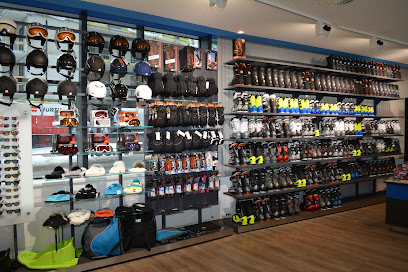
Plangger Delikatessen Ischgl
Discover the flavors of Ischgl at Plangger Delikatessen, where gourmet meets local charm in a cozy setting.
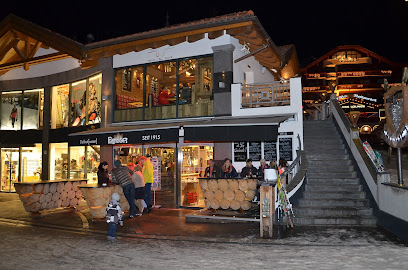
sport + mode Zangerl
Discover top-notch ski rentals, repairs, and sporting goods at Sport + Mode Zangerl in Ischgl, your ultimate skiing destination.
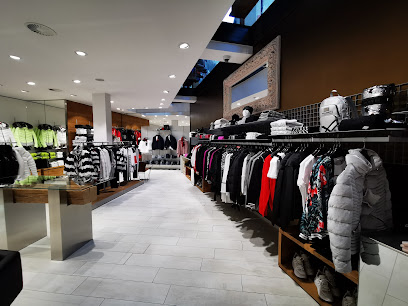
Sport Adler
Explore Sport Adler in Ischgl for top-notch sporting goods and ski rentals, ensuring a perfect alpine adventure for every visitor.
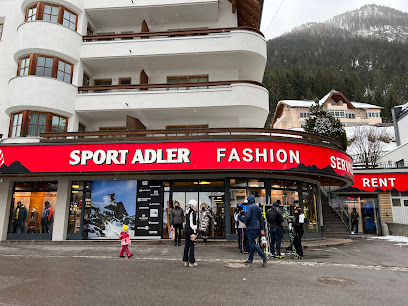
MPREIS
Discover the vibrant MPREIS supermarket in Ischgl, offering fresh groceries, local specialties, and essential supplies for every traveler.
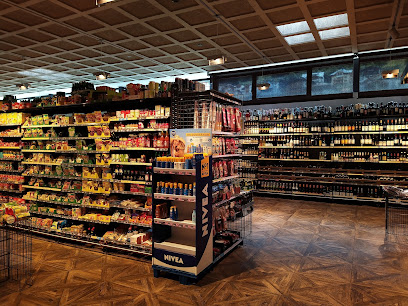
Silvretta Sports GmbH
Experience the thrill of skiing in Ischgl with Silvretta Sports GmbH, your ultimate destination for ski rentals and sporting goods.
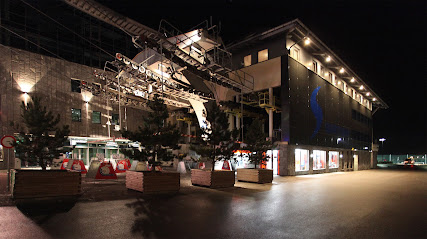
Ischgl Rent - Hauptgeschäft
Discover top-notch ski rental services in Ischgl, Austria, and gear up for an unforgettable winter adventure in the Alps.
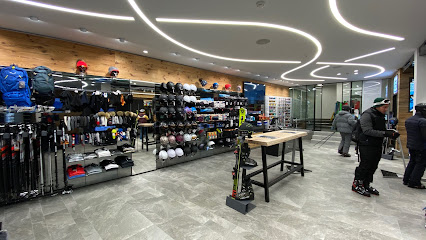
Bründl Sports Ischgl Life.Style
Explore the great outdoors with top-notch gear from Bründl Sports Ischgl – your go-to destination for skiing and mountain adventures.
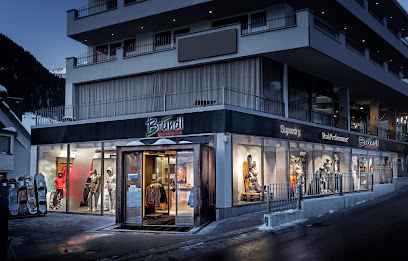
BIPA
Discover BIPA in Ischgl for all your health and beauty needs, where quality meets convenience in the heart of the Alps.
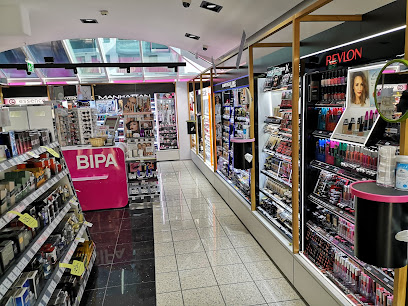
Ischgl Rent - Shop Prenner
Discover the best ski gear and expert advice at Ischgl Rent, the premier ski shop in Ischgl, Austria.
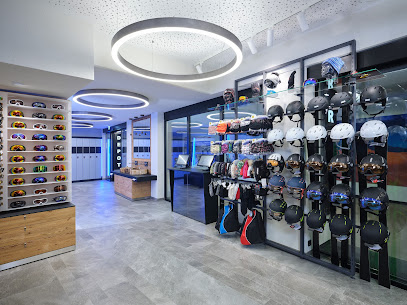
Silvrettasports Pardatsch Shop & Rent
Discover top-notch ski and snowboard gear at Silvrettasports Pardatsch Shop & Rent, your ultimate destination for winter adventures in Ischgl.
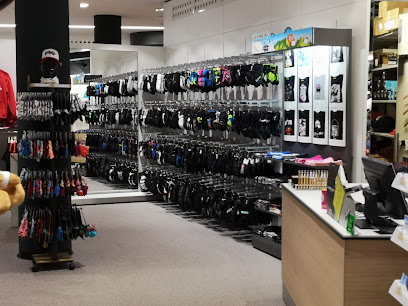
Essential bars & hidden hideouts
Trofana Alm
Experience the vibrant nightlife and delicious cuisine at Trofana Alm, Ischgl's premier live music bar and restaurant in the heart of the Alps.
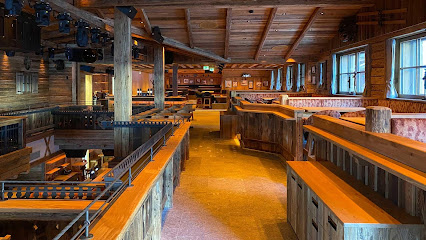
Schatzi Bar
Experience the vibrant nightlife of Ischgl at Schatzi Bar, where delicious pizzas and lively entertainment await you.
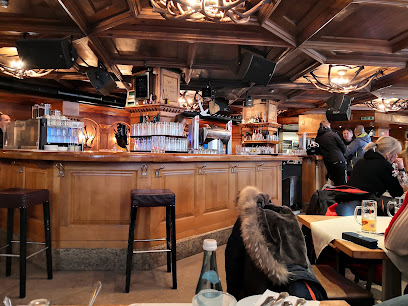
Vider Alp
Experience the charm of Vider Alp, a mountain retreat in Ischgl offering local cuisine, refreshing drinks, and stunning alpine views.
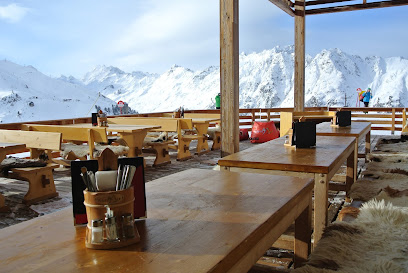
Kuhstall
Experience the vibrant nightlife of Ischgl at Kuhstall, a premier bar and restaurant offering delicious cuisine and lively entertainment.
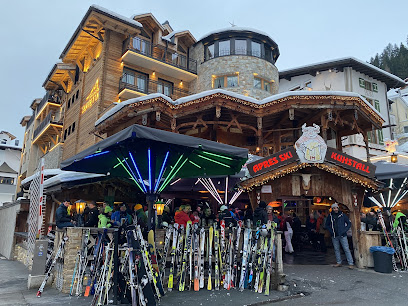
Niki's Stadl
Discover the vibrant nightlife and exquisite dining at Niki's Stadl, a must-visit bar and restaurant in the heart of Ischgl, Austria.
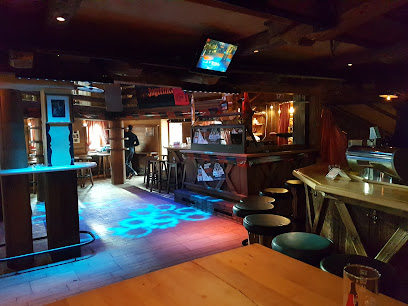
Kitzloch Ischgl
Discover Kitzloch Ischgl, the ultimate après-ski bar for relaxation and vibrant nightlife in the heart of the Alps.
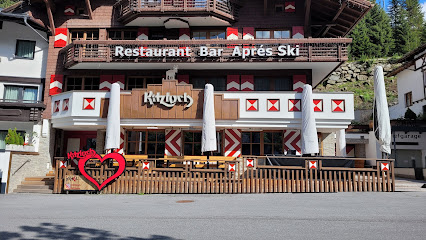
Golden Eagle
Experience the pulse of Ischgl at Golden Eagle, a vibrant pub offering exceptional drinks, lively atmosphere, and unforgettable nightlife.
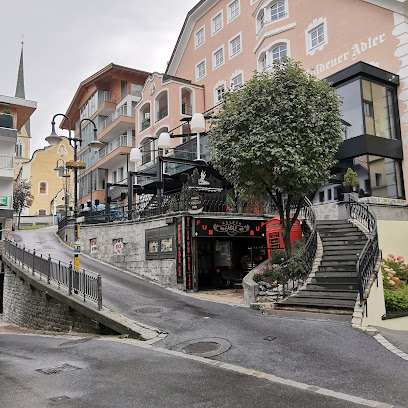
Bärafalla Restaurant
Experience the essence of Tyrolean cuisine at Bärafalla Restaurant in Ischgl, where traditional flavors meet modern culinary artistry.
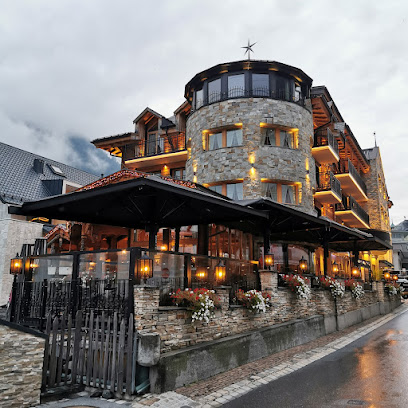
fire & ice ISCHGL
Discover the vibrant fire & ice ISCHGL, where delicious grilled dishes meet an electrifying nightlife experience in the heart of Ischgl.
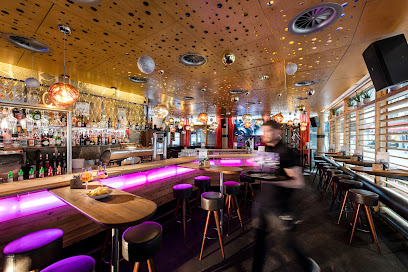
Pazze Nova
Discover Pazze Nova, a culinary haven in Ischgl featuring delightful local cuisine and a cozy atmosphere perfect for tourists seeking authentic dining experiences.
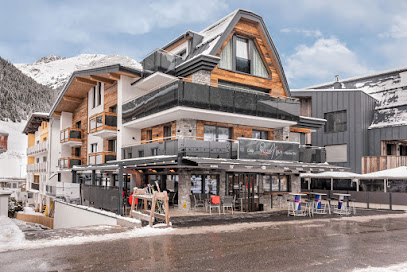
SPORT- UND GENUSSHOTEL SILVRETTA
Discover the perfect blend of luxury and adventure at Sport- und Genusshotel Silvretta in Ischgl, Austria's alpine paradise.
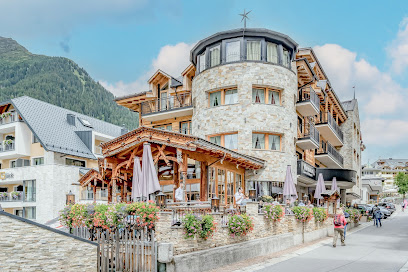
Champagnerhütte
Experience luxury at Champagnerhütte in Ischgl, where exquisite champagne and stunning alpine views create an unforgettable bar experience.
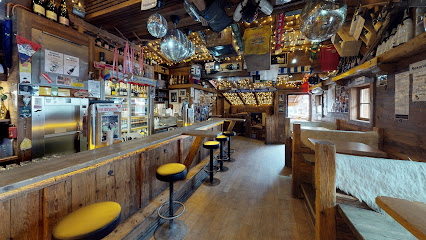
Winkler cafe-pub
Experience the charming Winkler Cafe-Pub in Ischgl, where delicious cuisine and a cozy atmosphere create the perfect retreat for tourists.
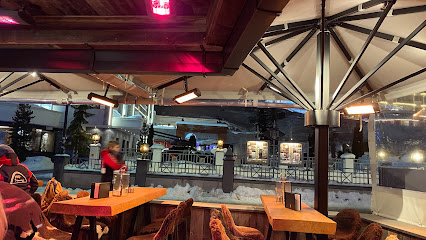
Gourmetrestaurant Salnerhof
Experience exquisite dining at Gourmetrestaurant Salnerhof, where culinary artistry meets the charm of Ischgl, Austria.
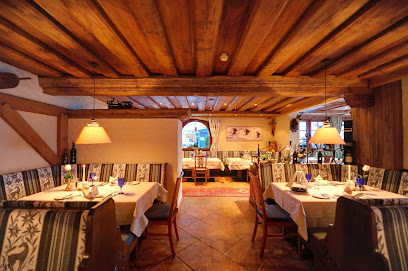
Local Phrases about Ischgl
-
- HelloHallo
[ha-loh] - GoodbyeAuf Wiedersehen
[owf vee-der-zay-en] - YesJa
[yah] - NoNein
[nine] - Please/You're welcomeBitte
[bit-teh] - Thank youDanke
[dahn-keh] - Excuse me/SorryEntschuldigung
[ent-shool-di-goong] - How are you?Wie geht es dir?
[vee geht es deer] - Fine. And you?Gut. Und du?
[goot oont doo] - Do you speak English?Sprechen Sie Englisch?
[shpre-khen zee eng-leesh] - I don't understandIch verstehe nicht
[ikh fer-shteh-eh nikht]
- HelloHallo
-
- I'd like to see the menu, pleaseIch möchte die Speisekarte sehen, bitte
[ikh merkh-teh dee shpy-ze-kahr-teh zay-en, bit-teh] - I don't eat meatIch esse kein Fleisch
[ikh es-seh kine fli-sh] - Cheers!Prost!
[prohst] - I would like to pay, pleaseIch möchte bitte zahlen
[ikh merkh-teh bit-teh tsah-len]
- I'd like to see the menu, pleaseIch möchte die Speisekarte sehen, bitte
-
- Help!Hilfe!
[hil-feh] - Go away!Geh weg!
[gehh vehg] - Call the Police!Rufen Sie die Polizei!
[roo-fen zee dee poh-lee-tsai] - Call a doctor!Rufen Sie einen Arzt!
[roo-fen zee i-nehn ahrts] - I'm lostIch bin verloren
[ikh been fer-loh-ren] - I'm illIch bin krank
[ikh been krank]
- Help!Hilfe!
-
- I'd like to buy...Ich möchte kaufen...
[ikh merkh-teh kow-fen] - I'm just lookingIch schaue nur
[ikh shau-eh noor] - How much is it?Wie viel kostet es?
[vee feel koh-stet es] - That's too expensiveDas ist zu teuer
[dahs ist tsoo toy-er] - Can you lower the price?Können Sie den Preis senken?
[kew-nen zee den prees zehn-ken]
- I'd like to buy...Ich möchte kaufen...
-
- What time is it?Wie spät ist es?
[vee shpet ist es] - It's one o'clockEs ist ein Uhr
[es ist iyn oor] - Half past (10)Halb zehn
[halb tsayn] - MorningMorgen
[mohr-gen] - AfternoonNachmittag
[nahkh-mit-tahk] - EveningAbend
[ah-bent] - YesterdayGestern
[gehs-tern] - TodayHeute
[hoy-teh] - TomorrowMorgen
[mohr-gen] - 1Eins
[iyns] - 2Zwei
[tsvay] - 3Drei
[dry] - 4Vier
[feer] - 5Fünf
[foonf] - 6Sechs
[zeks] - 7Sieben
[zee-ben] - 8Acht
[akht] - 9Neun
[noyn] - 10Zehn
[tsayn]
- What time is it?Wie spät ist es?
-
- Where's a/the...?Wo ist ein/der...?
[voh ist iyn/der] - What's the address?Was ist die Adresse?
[vahs ist dee ah-dreh-say] - Can you show me (on the map)?Kannst du mir das zeigen (auf der Karte)?
[kahnst doo meer dahs tsee-gen (ouf der kar-teh)] - When's the next (bus)?Wann kommt der nächste (Bus)?
[vahn kohmt der na-khste (boos)] - A ticket (to ....)Eine Fahrkarte (nach ....)
[i-ne fahr-kahr-teh (nakh)]
- Where's a/the...?Wo ist ein/der...?
History of Ischgl
-
Ischgl, a charming village in the Paznaun Valley, was first mentioned in historical records in the 10th century. Over the centuries, it evolved from a small agricultural community into a renowned tourist destination. Its name, derived from the Rhaeto-Romanic word 'ischla,' means 'island,' which reflects its geographic position surrounded by the majestic Alps.
-
The Paznaun Valley, where Ischgl is located, has long been a critical passageway through the Alps, connecting Austria and Switzerland. The development of the Silvretta Arena in the 1960s marked a turning point for Ischgl, transforming it into a world-famous skiing resort. The ski area now boasts over 238 kilometers of piste and state-of-the-art lift systems, attracting visitors from around the globe.
-
Ischgl has a rich cultural heritage deeply rooted in Tyrolean traditions. The village is known for its vibrant folk festivals, traditional music, and dance. The 'Almabtrieb,' an annual event marking the return of cattle from mountain pastures to the valley, is a highlight of the local cultural calendar. This centuries-old tradition is celebrated with colorful parades, music, and local delicacies.
-
In the early 20th century, Ischgl's remote location near the Swiss border made it a hotspot for smuggling activities. Villagers would use high-altitude routes to transport goods such as coffee, tobacco, and textiles across the border. These smuggling routes have since become popular hiking trails, offering a glimpse into the adventurous past of the region.
-
The parish church of St. Nikolaus is a significant landmark in Ischgl, dating back to the 15th century. This beautiful Gothic church, with its striking frescoes and baroque altar, reflects the deep religious roots of the community. Religious festivals and processions, such as the Feast of Corpus Christi, are still important events in Ischgl, showcasing the village's enduring spiritual heritage.
-
Since the 1990s, Ischgl has gained international fame not just for its skiing but also for its extravagant 'Top of the Mountain' concerts. These events, featuring global music stars, mark the beginning and end of the ski season. Held at an altitude of over 2,300 meters, the concerts draw thousands of visitors, further cementing Ischgl's status as a premier destination for both winter sports and entertainment.
Ischgl Essentials
-
Ischgl is situated in the Paznaun Valley in the Tyrol region of Austria. The nearest international airport is Innsbruck Airport, approximately 100 kilometers away. From Innsbruck, you can take a train to Landeck-Zams, followed by a bus or taxi to Ischgl. Alternatively, you can fly into Zurich Airport in Switzerland, which is about 240 kilometers from Ischgl. From Zurich, you can take a train to Landeck-Zams and then a bus or taxi. There are also shuttle services available from both airports directly to Ischgl.
-
Ischgl is a compact town, and many attractions and amenities are within walking distance. For exploring the surrounding areas, local buses are available and connect Ischgl with nearby villages and towns. Taxis are also readily available but can be more expensive. During the winter season, ski buses operate frequently to transport skiers to and from the slopes. Car rentals are available for those who prefer to explore at their own pace, but parking can be limited in the town center.
-
The official currency in Austria is the Euro (EUR). Credit cards are widely accepted in hotels, restaurants, and shops in Ischgl. However, it is advisable to carry some cash for smaller establishments and for tips. ATMs are available throughout the town where you can withdraw cash using international bank cards.
-
Ischgl is generally a safe destination for tourists. However, it is always wise to take standard precautions. Avoid walking alone in secluded areas at night and keep an eye on your belongings, especially in crowded places. There are no specific high-crime areas targeting tourists in Ischgl, but it is always best to stay vigilant and aware of your surroundings.
-
In case of emergency, dial 112 for immediate assistance, which is the European emergency number. The local police station and medical facilities are available in Ischgl. It is recommended to have travel insurance that covers medical emergencies. Pharmacies are also available in the town where you can purchase over-the-counter medications for minor health issues.
-
Fashion: Do dress warmly and in layers, especially during the winter season. Avoid wearing overly casual clothing in upscale restaurants. Religion: Do respect local customs and traditions. When visiting churches, dress modestly and be quiet. Public Transport: Do be courteous and give up your seat to elderly passengers. Don't eat or drink on public transport. Greetings: Do greet people with a friendly 'Grüß Gott' or 'Hallo.' A handshake is common when meeting someone for the first time. Eating & Drinking: Do try local delicacies such as Austrian pastries and Tyrolean dishes. Don't forget to tip around 5-10% in restaurants and cafes.
-
To experience Ischgl like a local, take part in the numerous festivals and events that occur throughout the year, such as the Top of the Mountain Concerts and the Ischgl Ironbike. Visit local eateries to try traditional Tyrolean cuisine. Engage with locals, as they are usually friendly and willing to share insights about the best spots in town. Don't miss the opportunity to explore the beautiful hiking trails during the summer and enjoy the world-class skiing in the winter.
Nearby Cities to Ischgl
-
Things To Do in Davos
-
Things To Do in Arosa
-
Things To Do in Triesenberg
-
Things To Do in Balzers
-
Things To Do in Vaduz
-
Things To Do in Dornbirn
-
Things To Do in Schellenberg
-
Things To Do in Mauren
-
Things To Do in Schaan
-
Things To Do in Eschen
-
Things To Do in Ruggell
-
Things To Do in Gamprin
-
Things To Do in St. Moritz
-
Things To Do in Bregenz
-
Things To Do in Innsbruck












